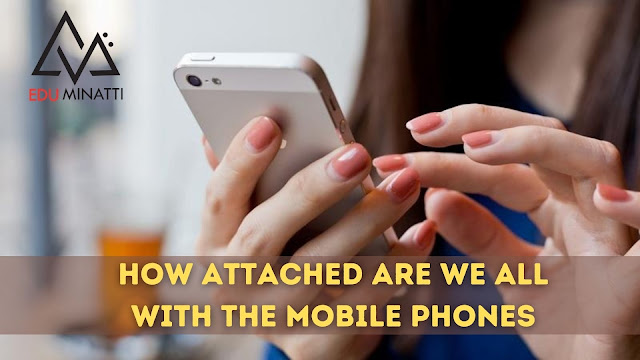How Attached Are We All With The Mobile Phones
You've temporarily lost your phone and restlessly backtrack your means to attempt to find it. Or then again, maybe you never let go of your smartphone—it's consistently in your bag, your pocket, or your hand, ready to be answered or counseled immediately. At the point when new models come out, you feel awful about bidding farewell to your electronic buddy. Also, when your battery life runs down toward the day's end, you feel that yours is running low too. We as a whole have experienced these encounters eventually in this innovation-driven present day.
Smartphones have become a significant part of our lives in the current day. Today, pretty much everyone claims a cell phone. According to educators of schools in Delhi, the device not just permits us to settle on telephone calls and send instant messages as past telephones had, yet additionally gives users prompt admittance to web-based media and social community frameworks, for example, Facebook and Twitter, permitting us to get to our email rapidly and consistently, giving admittance to the web, video calls, music documents and an entire eco arrangement of phone-based software, applications, all by means of a smooth touch screen interface. Today, there are a bunch of brands and smartphone models all competing for the overall industry share.
In that capacity, seeing how users become dependent on their advanced mobile phone for specific assignments, how they put time and cash in these devices, and maybe even how their relationship with these all-in-one pocket PC communicators is significant. Today, it is viewed as the standard for individuals to over and again and distractedly check their smartphones, not for missed calls, however for the innumerable notifications that social media, applications, and other programming let out at them by means of that touch screen. Cell phones today are not simply "objects"; individuals everywhere appear to have made a bond and connection with their cell phones. In certain circles, youngsters, writers, business clients, and different experts, it is even viewed as something of a tactless social act, an indication of being incompetent not to have a consistent association with the rest of the world through one's smartphones paying little heed to the conditions one winds up at any random time.
There has been a lot of conversation in the famous international schools in Delhi of the advantages and disadvantages of smartphones, independent of whether an individual uses an iOS gadget, a Samsung, MI or HTC model, an Android phone, a Blackberry, a Windows phone, or some other of the incalculable gadgets available, and whether we as a general public are turning out to be over-dependent or subject to these consistently on gadgets.
Through a survey conducted on 205 smartphone users in the age range 16 to 64 years from the UK, China, Australia, Canada, Peru, Hong Kong, and the USA, and through contextual analysis, the group has reached a primer inference. They found that individuals do for sure become sincerely attached to their smartphones, or possibly, the network and the innovation that the gadget encourages (Obviously, a stolen or lost phone can be supplanted with a similar model, and backup of the cell phone data can be reestablished to the substitution; the equivalent can't be said of a lost pet cat, for example).
It is the straightforwardness with which smartphones can be utilized, the need to keep them close, the capacity to empty out one's life into the applications and organizations to which it interfaces, and the customization and personalization choices of a PDA that brings out the psychological weight to possession. Smartphones are making a tremendous wave in the lake of human conduct, and it is significant that, as cell phones develop, we keep on considering the manner in which they influence conduct, feelings, and enthusiastic connections.




Comments
Post a Comment